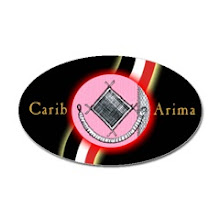United Nations Permanent Forum on Indigenous Issues
Item 8: Future work of the Permanent Forum,
including matters
of the Economic and Social Council and emerging issues
Wednesday, 29 May, 2013
Submission by the United Confederation of Taíno People (Caribbean Regional)
Presented by Roberto Mukaro Borrero
Takahi kena hahom. Greetings and thank you Mr. Chair:
The United Confederation of Taíno People is a regional initiative representing Indigenous Peoples of the Caribbean Islands. We have participated at every session of the UNPFII seeking to raise the visibility and promote a better understanding of the situations of Indigenous Peoples from this region, which is connected to Latin America in these proceedings.
Indeed, while the term Latin America and the Caribbean is promoted at various levels throughout the Permanent Forum sessions, as well as throughout the United Nations system, the full and effective participation of Indigenous Peoples of the Caribbean is unfortunately a rarity rather than the norm.
On the unusual occasion when Caribbean Indigenous Peoples, Indigenous islanders in particular, are highlighted within the system, there has been very little action on the part of U.N agencies or governments to engage in meaningful dialog or follow-up.
For example, the Programme of Action for the Second International Decade of the World’s Indigenous Peoples, under Item 6 Social and economic development, section b-85 states, and I quote:
“ It is recommended that representatives of Caribbean indigenous peoples should be included in region-specific consultations and conferences in Latin America and the Caribbean, and on steering committees for planning and implementing the programme of activities for the Second International Decade. Serious consideration should also be given to organizing a special regional consultative session focusing on the unique situation of Caribbean indigenous peoples, which would take place in the Caribbean, hosted by a Member State and a local indigenous community.”
Mr. Chair, to date there has been no such meeting and we are now nearing the close of the second Decade.
With this in mind, the United Confederation of Taíno People recommends that the Permanent Forum:
1.) Call on the Inter-Agency Support Group and Governments to support a regional consultative meeting on the situation of Caribbean Indigenous including Indigenous Peoples of non-self governing territories and unincorporated territories in the region, without discrimination.
2.) In cooperation with Indigenous Peoples, organize and hold an expert group meeting on the situation of Indigenous Peoples of non-self governing territories and unincorporated territories in 2014 and report on said meeting at its 13th session.
Hahom (thank you).
Wednesday, May 29, 2013
Tuesday, May 21, 2013
Annual United Nations Indigenous Peoples Forum begins
United Nations (UCTP Taino News) - Over 2000 representatives of Indigenous
Peoples have registered and are expected to attend the 12th session
of United Nations Permanent Forum on Indigenous Issues. The Forum opened on 20
May and will close on May 2012. Some of the themes to be discussed include
culture, education and health, as well as youth, Indigenous Peoples of Africa
and international financial institutions. The session opened with a welcome
blessing by Todadaho Sid Hill, a traditional Chief of the Onondaga Nation, part
of the Six Nations or Iroquois Confederacy.
A message from the Secretary General Ban Ki
Moon was delivered by Wu Hongbo,
Under-Secretary-General for Economic and Social Affairs. The message stressed
that “We must have a better understanding of the views and values of indigenous
peoples by engaging them in decision-making and providing a platform for issues
affecting their lives and livelihoods.”
The Forum also elected a new chairperson,
Paul Kanyinke Sena, who will facilitate the two-week session. A Maasai from
Kenya, Sena stated in his opening address that Indigenous concepts of health and healing
includes not only access without discrimination to social and health services,
but also includes connections with family, land and language, as well as access
to traditional plants, animals and minerals.
Other opening remarks were
presented by the Vice-President of the UN General Assembly, Abulkalam Abdul
Momen and the President of the UN Economic, Social and Economic Council
(ECOSOC), Néstor Osorio.
Among the diverse participants of
this year’s session representatives of Caribbean Indigenous Peoples such as the
Lokono Arawak, Carib, and Taino are in attendance. The United Confederation of
Taino People, for example, has accredited a number of delegates from throughout
the Caribbean region including Borikén (Puerto Rico), Barbados, and Guyana.
Along with the various
discussions and debates taking place during the week, a number of side-events
on related-issues will take place in and around United Nations Headquarters.
Labels:
Carib,
Caribbean,
ECOSOC,
Lokono-Arawak,
Ma,
Paul Kanyinke Sena,
PFII,
Taino,
United Nations
Subscribe to:
Posts (Atom)




